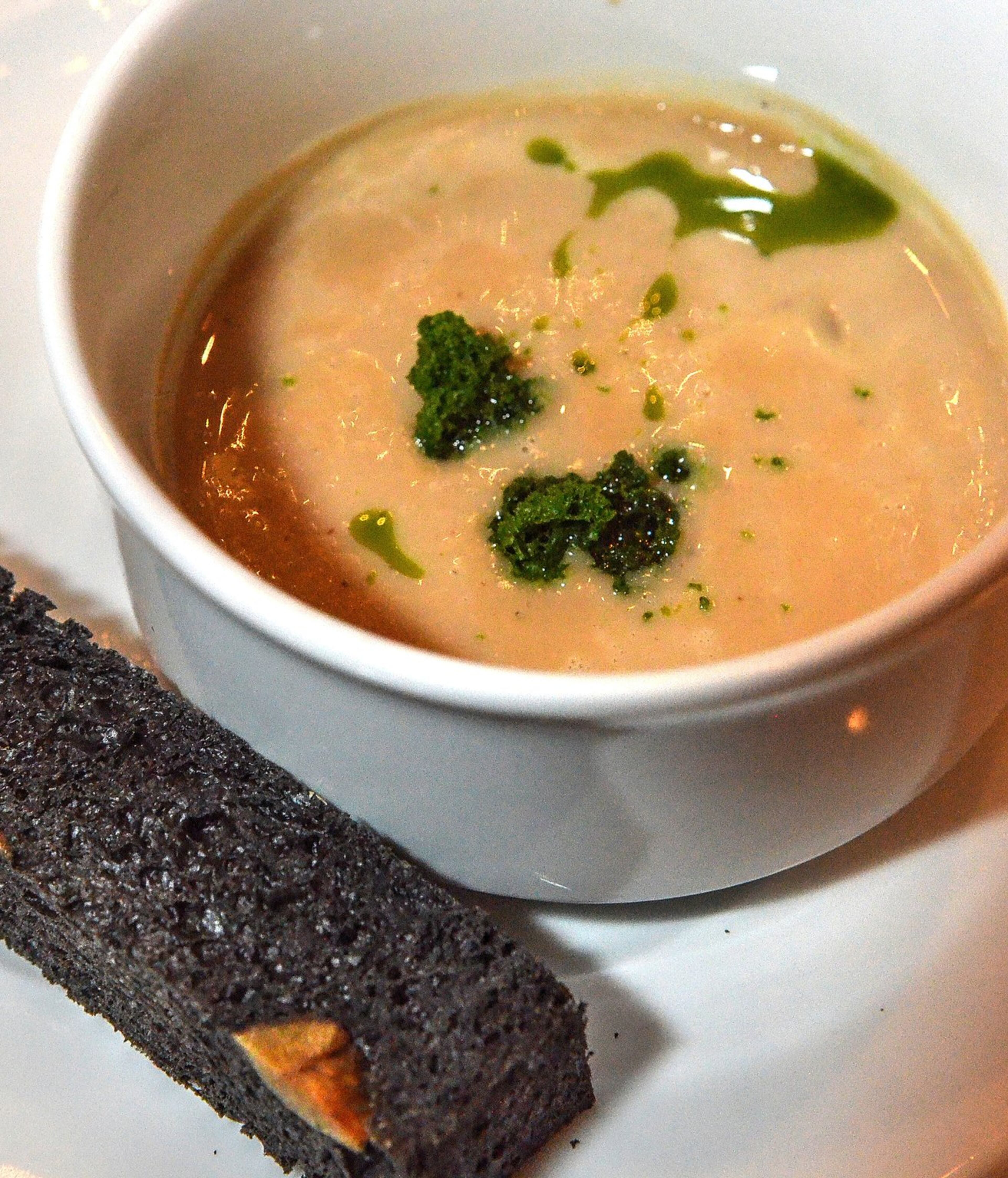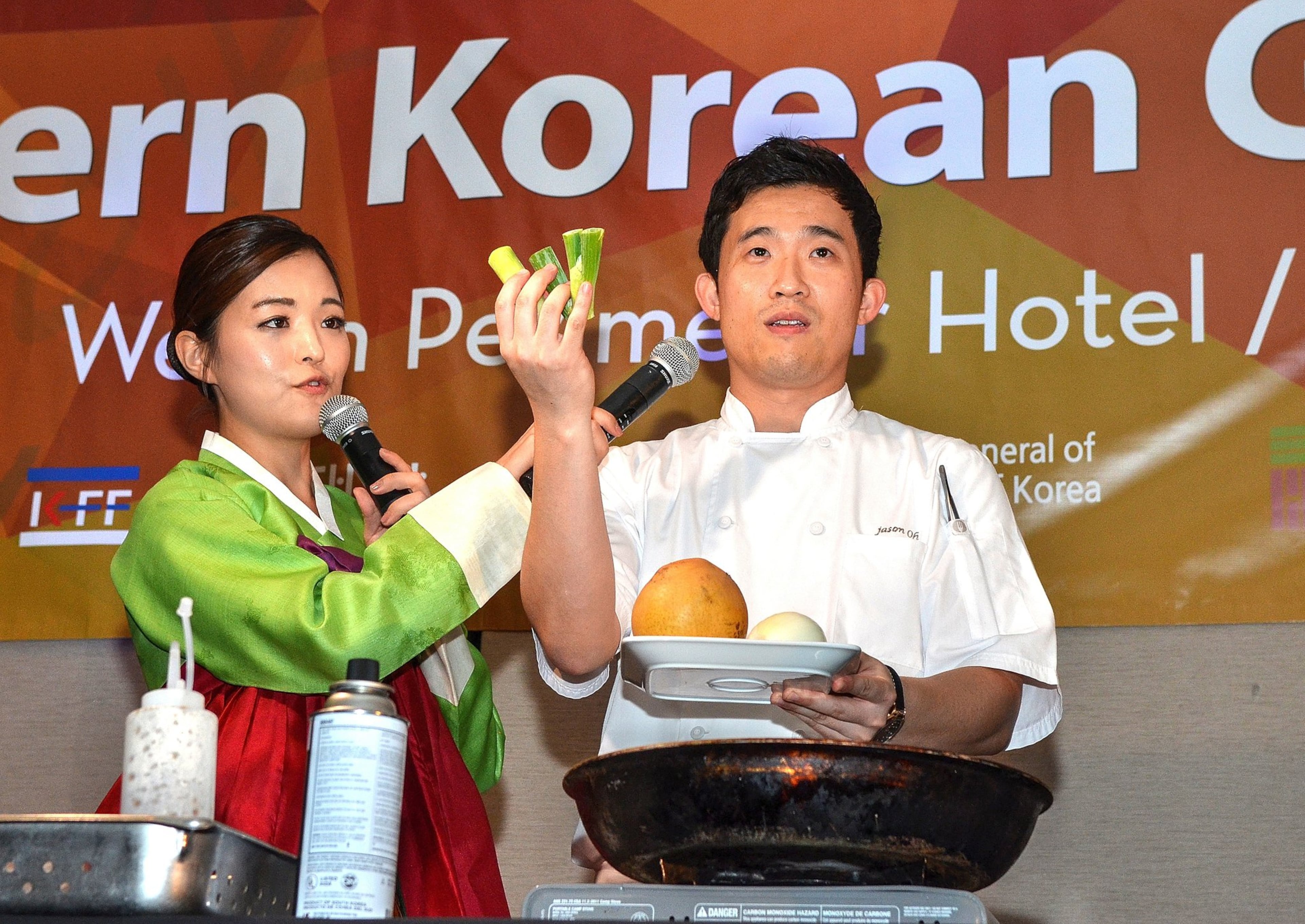Let us give thanks for the Korean harvest feast in Georgia

Songpyeon. Jeon. For curious minds, those are Korean dishes. Moreover, they are typically served on Chuseok, an important Korean holiday.
Chuseok is a harvest feast, similar to Thanksgiving. The celebration, observed over the course of three days in Korea, is based on the lunar calendar, so while the date changes each year, the holiday is always held on the 15th day of the eighth month, around the fall equinox.

Chuseok was the premise for an Oct. 5 gala dinner hosted by the Consulate General of the Republic of Korea in Atlanta, in partnership with the Korean Food Global Association and the Korean Food Foundation. Guests included area politicians, business leaders and members of the food community. The goal, said Consul General Seong-Jin Kim, was to foster greater awareness and understanding of Korean culture, its cuisine in particular.
The five-course dinner would not be a typical Chuseok menu. Rather, it would highlight traditional Korean ingredients, cooking methods and dishes, but delivered with contemporary, orchestrated plating. Translation: fancy.
That sounded like a gastronomic delight, but I really wanted to know more about Chuseok. I’m embarrassed to say that I’d not heard of it before.
A few days before the event, I met with the organizers at Myung Ga Won, a Korean restaurant located in a nondescript shopping plaza near I-85 and Pleasant Hill Road in Duluth much like any number of ethnic restaurants along Buford Highway.

Stepping inside, however, brings greetings from Korea — masks, dolls, flutes, horns and other musical instruments. I was directed upstairs to one of the many private rooms. (Myung Ga Won is open 24 hours, making it a favorite place for business exchanges at all times of the day.) Seven people stood to greet me.
It’s awkward to be an honored guest lacking in language skills. There was so much I wanted to know about this holiday, but to talk of it meant I needed some Korean 101, like how to pronounce ‘Chuseok’ correctly.
“Chew sock,” chimed a few voices at once.
“Chew sock,” I repeated.
“Chew sock. Chew sock.”
The third time, I said it more quickly, trying to reproduce the sounds, the rhythm of their speech, with a focused attempt to get the ending K just right. They smiled, nodded. (By George, I think she’s got it!)
I imagine it’s like one of the beginner language lessons at the Korean Education Center in Duluth, open since August, or one of the 40 Saturday Korean language schools throughout Georgia helping young Korean-Americans learn about their heritage.

Chuseok dates back more than a thousand years, my hosts told me. (Online research says it’s more like 2,000 years.) The name translates to “fall night” or “end of the season,” they explained. And, while Chuseok is a harvest festival — always taking place during a full moon — it is also a time when families honor their deceased loved ones, loosely comparable to Día de los Muertos traditions in Mexico.
In general, family members gather at the home of the firstborn, who hosts the special meal. Similar to Thanksgiving, Chuseok sees a travel rush, with everyone — North or South — making a beeline for ancestral homes to celebrate with loved ones.

Typical Chuseok dishes include jeon, a type of egg pancake (flatter than the Japanese equivalent, okonomiyaki) filled with fish, seafood or meat, and vegetables. Jeon recipes vary by family and by region. If you live on the coast, it makes sense to use the bounty of the sea. Inlanders might use meat. Vegetables are whatever is in season.
Korean pear, which hits peak ripeness this time of year, also makes an appearance. It is served with few frills. But a plate of pears isn’t just any old plate of pears but one filled with juicy, sweet, apple-shaped Korean pears.
Braised beef short ribs, called galbijjim, are a typical Chuseok main offering. And songpyeon, a small, half-moon-shaped rice cake stuffed with sweetened sesame seeds or nuts, is a dessert highly associated with this holiday.
Are there non-food traditions, I asked?

What football is to Thanksgiving, Korean wrestling, known as ssireum, is to Chuseok. Families watch matches on TV. Kids go outside to challenge one another in strength and technique.
When the Chuseok celebration is especially extravagant, people don customary Korean attire. At the gala dinner, emcee Angela Kim, a Korean culinary ambassador who has gained celebrity status as broadcaster for Tasty Korea, wore a colorful hanbok dress.
Of that dinner, I can report that a chestnut soup finished with leek oil was divine. The slow-cooked galbijjim was tender beyond any meat I could possibly fathom cooking at home, and deep with soy flavor. The bibimbap was as royally prepared that day as I imagine it was since first served to the Chosun dynasty in the late 1300s. Interludes of musical performances, like the playing of the gayageum (the Korean zither) and the daegeum (a bamboo flute), were as calming and restorative as the food.

But my takeaway from this event is not just of food. It is one of gaining a sense that Korean leaders in this community are eager for you, me, all of us, to get to know them better.
There’s no wonder that this happened over food. The table has always been the place where acquaintances turn into friends — whether at a 24-hour Korean restaurant, a hotel banquet room, or around the coffee table inside the private office of the consul general of the Republic of Korea in downtown Atlanta.
Seong-Jin Kim, the consul general, is nearing three years on the job here in Atlanta. In his career as a civil servant for the Republic of Korea, he has been posted in Washington, Boston, Los Angeles. He calls Atlanta a “very diverse, international city,” and he regards hospitality as an characteristic that Southerners share with people of Korean descent.
Kim is also excited by the vibrancy of the growing Korean community in greater Atlanta, home to the third-largest Korean population in the U.S., and in Georgia, where 100,000 Korean- Americans now reside.
The flavors of Seoul are more accessible than ever with daily flights from Atlanta to Seoul. But closer to home, you can choose food as a pathway to learning about this culture at one of 300 metro Korean restaurants. Me? I need to take a desk in a classroom at the Korean Education Center and brush up on how to say ‘Chuseok.’


